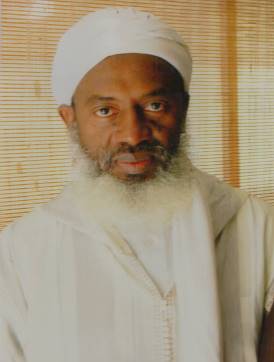An influential Muslim cleric in Nigeria says the responsibility for dealing with the threat of Boko Haram lies with the Muslim community.
“We [Muslims] have to understand that these people [Boko Haram] are from among us and that the society was not doing enough to bring these elements out,” Sheikh Ahmad Gumi told The Interview magazine. “We have to reflect and see if we want to truly combat Boko Haram. I can tell you that Boko Haram is 100 per cent a Muslim problem … It is we Muslims that have the responsibility to tackle it more than anybody else.”

Facebook / Dr. Ahmad Abubakar Mahmud Gumi
Gumi is an influential figure in Nigeria, particularly with the Muslim youths of the Izala sect in the north of the country. His father, the late Abubakar Gumi, was a highly controversial cleric, who is attributed to have influenced the radical, Wahhabi theology of Boko Haram and other radical groups.
Abubakar Gumi was once the Grand Khadi of the Northern Region of Nigeria, and head of Sultan Bello Central Mosque in Kaduna. He attacked the mysticism attached to Sufi Islam and publically squabbled with the Sultan of Sokoto, the most influential figure for Nigeria’s Fulani and Hausa peoples. He paved the way for the founding of the Izala sect in Jos, Plateau State, in 1978. Izala has since grown in influence and number in most parts of northern Nigeria and spread to countries like Niger, Chad and Cameroon, where Boko Haram also operates.
After the death of his father, Ahmad Gumi, who was schooled in Saudi Arabia, founded the Nigerian Muslim Shurah Assembly, in an attempt to unite Nigeria’s Muslims.
Following in his father’s footsteps, the younger Gumi has delved into controversy, but unlike his father, he also promotes peaceful co-existence in a country torn by deep ethnic and religious divides, which have led to the killing of thousands of Christians.
He has taken to social media to propagate his ideas. In a 2012 Facebook post, he wrote: “We Muslims collectively are more POWERFUL than any group in the nation, yet … we forfeited this power. POWER protects wealth, lives, culture, religion and family. When you give power to the wrong person you lose all. This can explain our poverty, terrorism, moral degradation and family disunion.”
We have to understand that these people are from among us. I can tell you that Boko Haram is 100 per cent a Muslim problem. It is we Muslims that have the responsibility to tackle it more than anybody else.
For Sheikh Gumi to declare that Boko Haram is “100 per cent a Muslim problem” could indicate that Muslims in Nigeria are fed up with the terrorist group. It could even prove a major turning point in the fight against them, although it may also make him a target.
“Boko Haram is a segment of the northern population, and cooperation was protecting them,” he said. Though he did not name which “cooperating” organisation he was referring to, he is not the first to suggest that Muslim groups in the north – and even some politicians – have been secretly supporting Boko Haram.
Gumi also said that corruption has hampered the military campaign against Boko Haram. However, he suggested the man behind the arms scandal, the former national security adviser to former President Goodluck Jonathan, Sambo Dasuki, should not be prosecuted.
“When you place Dasuki, whose father is the Sultan of Sokoto, and put him in that situation … it could cause problems in Nigeria,” he said.
The challenge Ahmad Gumi has thrown down to the Muslim community in Nigeria is commendable because Boko Haram still has sympathisers within large sections of the Muslim population in the north. The fact of the matter is that, unless the Muslim community sees radical Islam as its own fight, and works hard to reform Islam, any assistance from non-Muslims will be considered suspicious and therefore rejected.
But more important is the fact that, unless Muslims all over the world become proactive in the fight against terrorism, there will always be a suspicion they are collaborating with terrorists.
To say that Islam is a peaceful religion and that terrorists are not Muslims is not enough, because terrorist groups use the Qur’an and Hadith in defence of their ideologies. Not many people know the difference – even Muslims.
“All lizards crawl on their belly. How do we know which suffers bellyache?” an African proverb says.
People want terrorism to stop. But like another African proverb says, ‘He who wants to swim must be prepared to get wet.”
To fight Islamophobia and unify Nigeria, Muslims must engage radically with radical Muslims.
Hassan John is a journalist and Anglican cleric in Jos, the capital of Nigeria’s central State of Plateau, one of the most affected by sectarian violence in recent years.